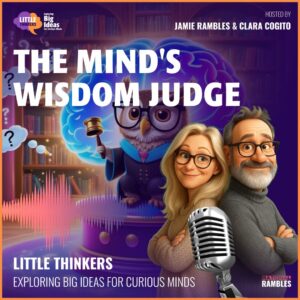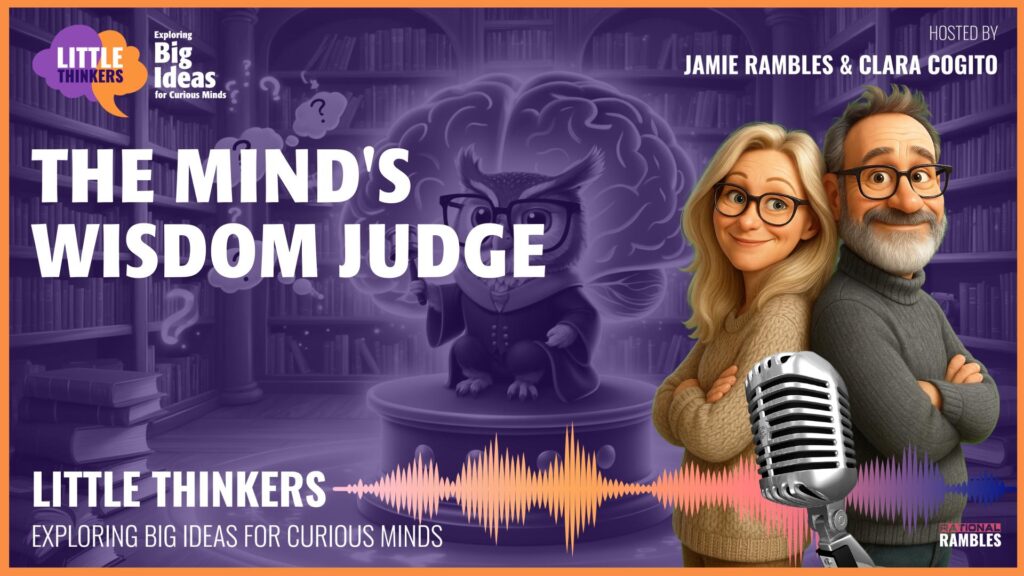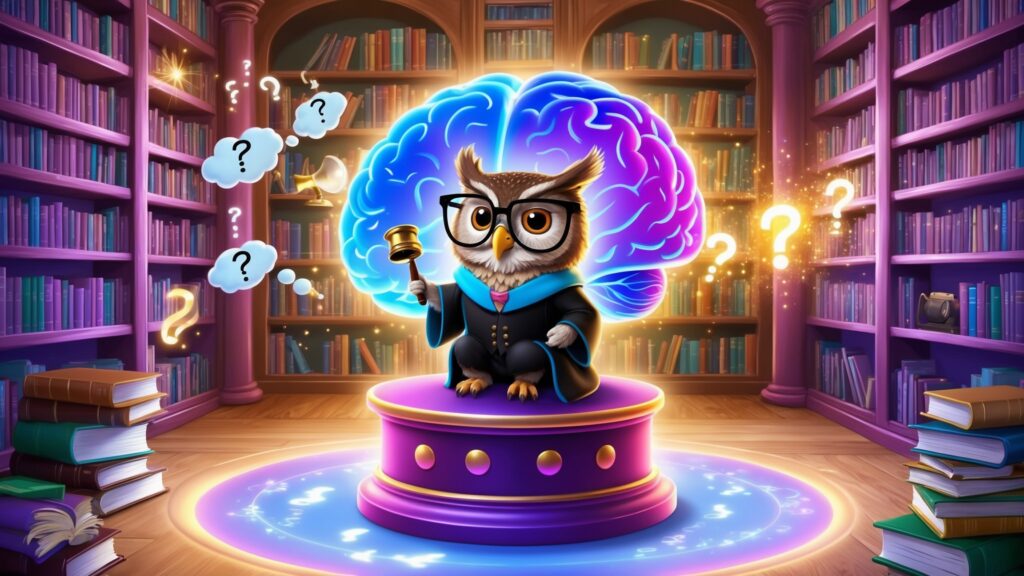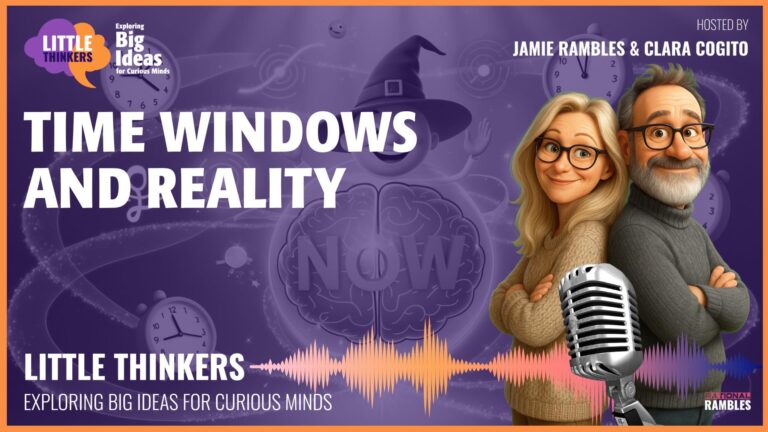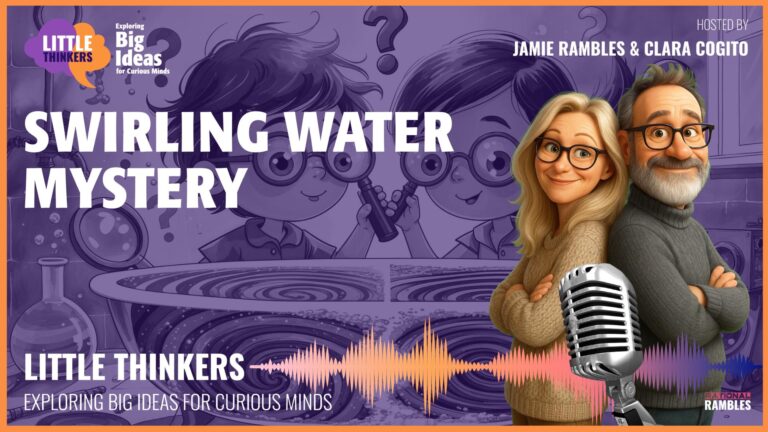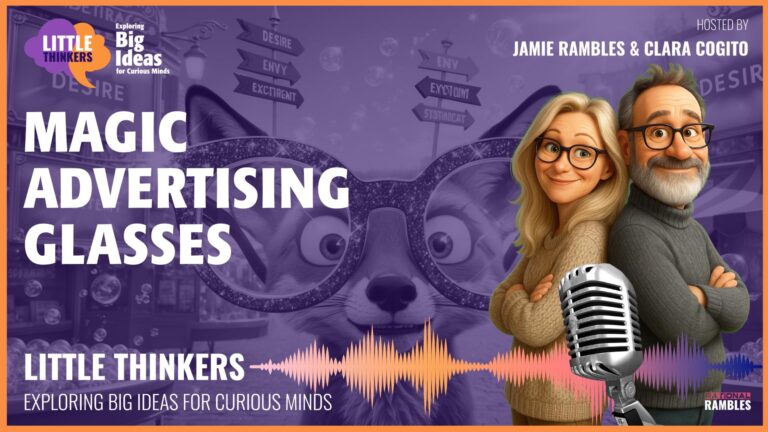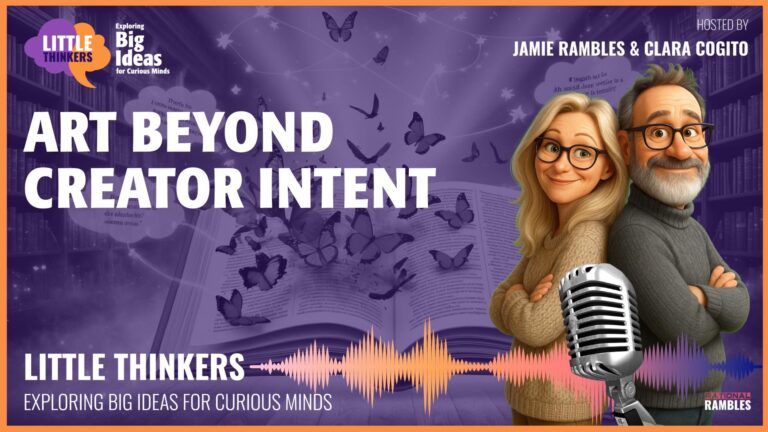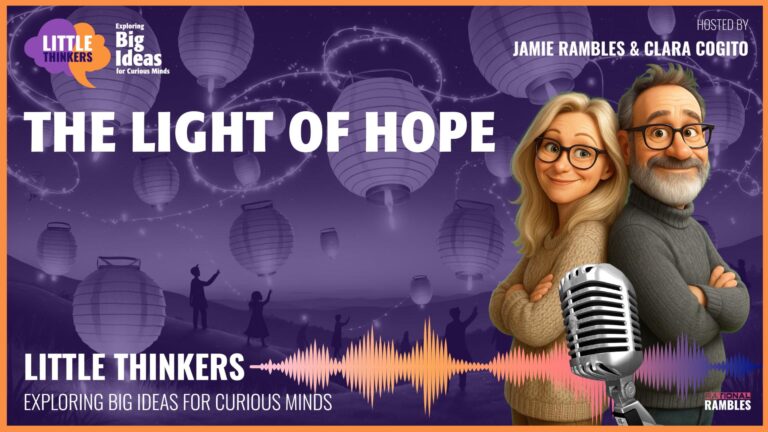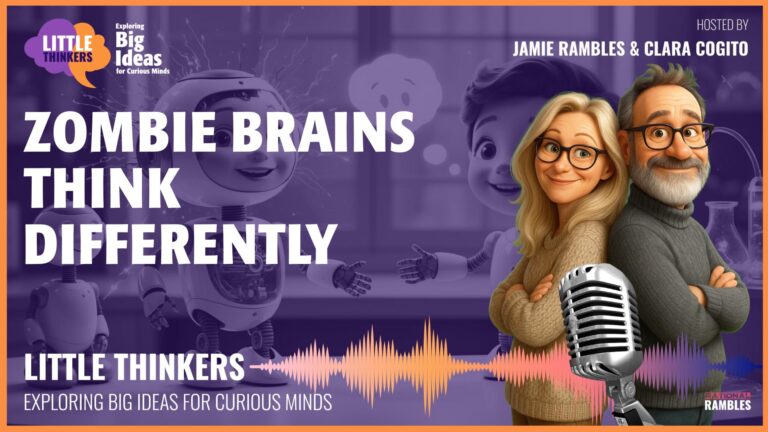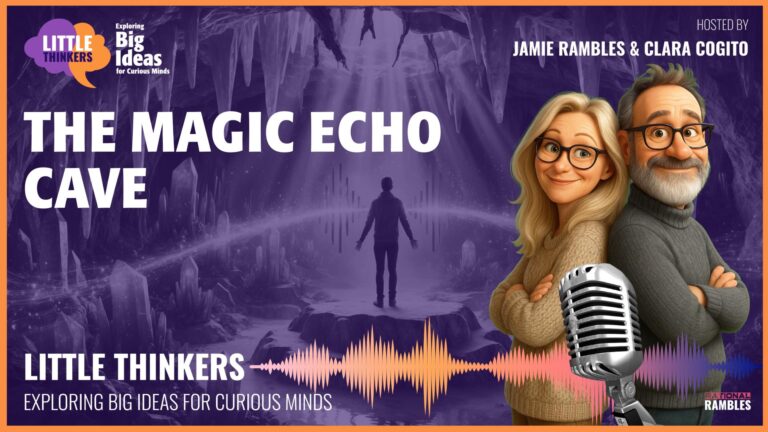The Amazing Thought Detective in Your Brain!
Meet Your Mind’s Special Helper
Have you ever wondered if there’s a special helper living inside your brain? Guess what? There is! It’s not a tiny person with a magnifying glass (though that would be pretty cool). It’s something called your “inner judge” or “thought detective” – and it’s one of your brain’s superpowers!
This thought detective has a very important job: to look at all the ideas and stories that come into your head and ask, “Hmm, is this really true?” before you believe them. It’s like having your very own wisdom superhero!
What Does Your Thought Detective Do All Day?
Imagine you’re at school, and your friend tells you, “If you swallow watermelon seeds, a watermelon will grow in your tummy!” That sounds pretty scary, right? But wait…
Your thought detective jumps into action with a special magnifying glass and starts asking questions:
- “Has this ever happened to anyone before?”
- “How would a plant grow without sunlight inside a tummy?”
- “Do doctors ever find watermelons in people’s tummies?”
After looking at all these clues, your thought detective would tell you, “This isn’t true! Seeds need soil, water, and sunlight to grow – and your tummy doesn’t have those things!”
Detective Challenge #1
What would your thought detective say if someone told you, “Spiders crawl into people’s mouths when they sleep”? Take a moment to think about what questions your detective would ask!
Why We Need Our Thought Detectives
Sometimes, we believe things without checking if they’re true. This can make us feel scared or worried for no reason! Once, a little girl was so worried about spiders in her hair at night (because her cousin told her it happens) that she wore a swimming cap to bed! Her thought detective was probably taking a nap that day.
Our thought detectives help protect us from:
- Silly worries that aren’t based on facts
- Unfair ideas about ourselves or others
- Tricks and fibs that people sometimes tell
- Mistakes in our own thinking
Your Thought Detective Fights Against Unfair Ideas
Sometimes people say things that aren’t fair, like “Girls can’t be good at math” or “Boys shouldn’t cry.” Your thought detective would get very busy with claims like these!
For the math claim, your detective might ask: “Have there been girls who are amazing at math? Yes! Are there women math teachers and mathematicians? Yes! So this claim must not be true!”
For the crying claim, your detective would discover that crying actually helps our bodies release stress chemicals. It’s like having a built-in emotional sprinkler system! Everyone needs that, not just girls!
Amazing Tear Fact!
Did you know humans are the only animals that cry emotional tears? Even though many animals feel emotions, only humans have built-in emotional sprinklers in their eyes! Your thought detective loves collecting cool facts like this!
Your Thought Detective Protects You From Yourself Too!
Sometimes the unfair thoughts come from inside our own heads. Have you ever made a mistake and thought, “I’m the worst at this ever!”?
Your thought detective would say, “OBJECTION! Is one mistake really enough evidence to make such a big claim? Everyone makes mistakes when learning something new!”
The thought detective reminds you that making mistakes is how we learn and grow. Even Olympic athletes make mistakes during practice!
How to Make Your Thought Detective Stronger
Sometimes our thought detective falls asleep on the job, especially when we really WANT to believe something even if it might not be true. Here’s how to wake up your detective and make them stronger:
1. Practice Asking Questions
Questions are like vitamins for your thought detective! Try asking:
- “How do I know this is true?”
- “Where did this information come from?”
- “Could there be another explanation?”
- “What evidence supports this idea?”
2. Read Lots of Books
Reading gives your thought detective more information to work with. It’s like giving your detective a bigger toolbox filled with facts!
3. Talk to Different People
When you talk to people who have different experiences than you, your thought detective learns that there are many ways to see the world, not just one!
4. Create a Detective Signal
Try tapping your temple gently three times and whispering, “Detective, are you awake? I need your wisdom!” This can remind you to think carefully before believing something.
Let’s Play Detective: Truth or Tall Tale?
Let’s practice being thought detectives with some claims. Read each one and think about what questions your detective would ask!
Claim #1: “Eating carrots gives you super night vision like a cat!”
Your thought detective might ask:
- “Have scientists proven humans can see in the dark like cats?”
- “Do people who eat lots of carrots need fewer lights at night?”
- “How would carrots change my eyes to work like a cat’s eyes?”
The truth: Carrots contain vitamin A which is good for eye health, but they won’t give you cat-vision! This claim actually started as a clever trick during World War Two! British pilots didn’t want enemies to know they had radar to see planes at night, so they spread the story that they ate lots of carrots for better night vision!
Claim #2: “If you swallow chewing gum, it stays in your stomach for seven years!”
Your thought detective would question:
- “How would the gum know to stay exactly seven years?”
- “Do doctors find old gum when they look in stomachs?”
- “What happens to other things that are hard to digest?”
The truth: While gum isn’t easily digested like other foods, your body still moves it through your digestive system within a few days. It definitely doesn’t camp out for seven years!
The Grown-Up Name for Your Thought Detective
Adults call this detective work “critical thinking.” It’s just a fancy way of saying “carefully examining ideas before believing them.” But we think “thought detective” sounds much more exciting!
And guess what? Kids are often AMAZING critical thinkers because you’re naturally curious and ask lots of “why” and “how” questions. Sometimes grown-ups forget to keep asking those important questions!
The Power of “Why?”
When little kids go through that phase of asking “why?” about EVERYTHING, they’re actually training their thought detective! Each “why?” is like your detective doing push-ups and getting stronger! (Even if it sometimes makes grown-ups need a quiet moment!)
Your Thought Detective Makes the World Better
Imagine if EVERYONE had a strong thought detective checking their ideas. The world would be different in amazing ways:
- People would be kinder because they’d question mean thoughts
- There would be fewer arguments because people would check if they really understood before getting upset
- Kids (and grown-ups!) wouldn’t feel so bad about themselves when they make mistakes
- Fewer people would be tricked by false information
Become a Thought Detective Scientist!
Try being a detective scientist this week! Keep track of how many times your thought detective helps you question something before believing it. You could even keep a small notebook as a “Detective’s Case File” where you write down claims you investigated and what you discovered!
Remember, your thought detective isn’t there to make you doubt everything – it’s there to help you build stronger, more accurate beliefs based on good evidence. It’s like having a wise friend looking out for you!
What Will You Discover?
Your brain is amazing, and your thought detective is one of its most powerful tools. Every time you stop and think, “Wait, is this really true?” you’re exercising an incredible superpower that can help you throughout your whole life.
So keep your detective badge polished and your questions ready! The world is full of ideas to investigate, and your thought detective is ready for the case!
